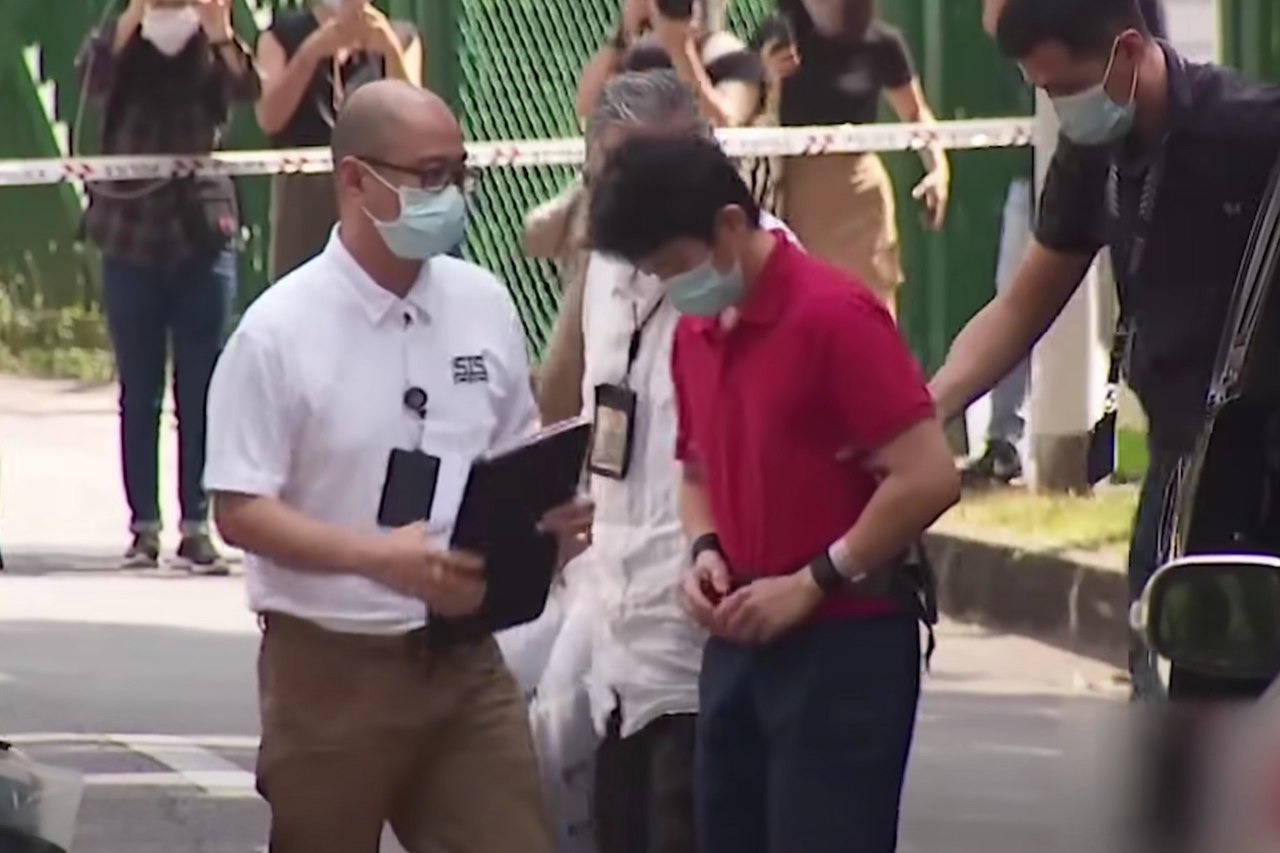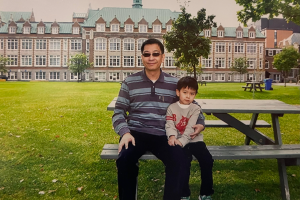Top image: CNA / YouTube
On January 21st, 2022, Xavier Yap strangled his autistic twin sons to death in a canal in Greenridge Crescent. They were only 11.
Yesterday, the downright tragic case came to a conclusion of sorts when the 50-year-old was sentenced to 14 years in jail for two charges of culpable homicide not amounting to murder.
ADVERTISEMENT
More details have emerged about the case, each one more heartbreaking than the next.
The boys apparently struggled in school. They were suspected of having autism spectrum disorder at the age of two but were only formally diagnosed in 2017, which also uncovered their global developmental delay. By the time they started Primary 1 at a mainstream school (as opposed to a special education school), they were still non-verbal.
Worrying for the future of his sons, Aston and Ethan, and wanting to relieve his wife of the ‘burden’ of caring for them, Yap chose to end the life of the boys and himself.
The father had, for all intents and purposes, tried to end his own life via capital punishment. He lied to police that the three of them had been attacked, believing that the truth would be discovered and his lies would earn him the death sentence.
He harboured thoughts of suicide in December 2021, a month before the incident, and did not know he was suffering from major depression disorder.
Media reports on the shocking case did little to quell public distress. Even anecdotes from their grandmother of them visiting her house, playing catching, and hiding their slippers to avoid going home took on a poignant light.
Perhaps the most polarising—and troubling—bits were revelations about the boys’ mother. According to Yap, she couldn’t come to terms with the boys’ condition and he felt she’d given up on them.
In a letter read out in court, he also wrote that she was cheating on him and had invited her lover to stay over at their house after the boys’ deaths.
The Blame Game
The outpouring of reactions is understandably emotional. Two young innocent lives have been cut short. A father has his children’s blood on his hands.
The fact that he wanted the best for them (the man feared that they would be bullied and that no one would take care of them after he and his wife died) makes the situation all the more harrowing.
Many empathised with Yap and wished for him to find peace after serving time. But an overwhelming number of comments tore into his estranged wife—the couple are currently in the process of divorcing.
One of the top comments on a Reddit thread reads: “Hope he can move on at least, with minimal financial loss from that demon of an ex-wife.”
Another asserted that the tragedy might have been avoided if Yap’s wife had been “more understanding, supportive and accepting”.
Without any official input from Yap’s wife, it seems as if the public has taken it upon themselves to play judge and jury in the case. And in the process, they’ve vilified a woman who also lost her sons.
Of course, how the media chooses to cover high-profile cases like Yap’s only fuels this animosity, whether intentional or not. Family friends are interviewed in hopes of procuring juicy details. Yap’s claims about his wife are splashed all over the headlines.
Let’s imagine for a second that everything Yap claims is true. What good does flaming her online do? And on the off chance that his side of the story—which is all we have at material time—is skewed, the woman would have to endure online hate and slander on top of grieving the boys.
The fact that the two boys were killed, with Aston watching quietly as his father strangled his twin brother, is hard to fathom or even come to terms with. It’s tempting to make sense of a senseless situation by finding someone to blame.
ADVERTISEMENT
What we’re missing when we do that is the unfortunate circumstances both parents were in—and the issues that might have been added stressors.
The special education field has been bolstered in recent years. Singapore now has 22 government-funded special education schools and will have 28 in the next decade. Still, parents, educators, and counsellors told The Straits Times last February that more needs to be done to improve work and education options for those with special needs.
While school-to-work programmes exist, parents of kids who don’t make it into the programmes often worry about their futures.
Even those who do move on to institutes of higher learning have it rough. Autistic university students told the newspaper that they faced problems transitioning to higher education and integrating with their peers.
Instead of attacking the boys’ mother online, perhaps pressing lawmakers to take action would have more utility. We can’t bring the boys back, obviously. But ensuring systemic changes is one way we can attempt to prevent a similar case from ever occurring.
And that includes pressing our parliamentarians for answers.
On Holding Xavier Yap Accountable
In the wake of Yap’s indictment last February, education minister Chan Chun Sing fielded several parliamentary questions on the matter and clarified the support measures currently in place for parents of special needs kids.
His only suggestion to improve the situation, however, was for the community to serve as a “circle of support” for the parents.
“We need not wait for one another. Let us all make the first step. Let them know that we value them and their children. Let us remind them that they are not alone.”
Solidarity is important. So is more assistance for special needs kids and their parents. The presumptuous online comments from keyboard warriors, however, we can probably do without.
Understandable, considering the heart-rending circumstances. But unnecessary.
As a community, what we can—and should do—goes beyond platitudes and letting people know you’re there for them. It’s about consistent advocacy and efforts to raise awareness that will actually influence change and create a more supportive environment for families going through similar challenges.
Equally crucial in this case is not letting our empathy for Yap overshadow his actions. There were extenuating circumstances, sure, but taking his sons’ lives was an extreme measure driven by desperation and the mental tolls of being a caregiver.
He has the rest of his life to come to terms with his actions and learn to live with it. His sons, on the other hand, will not.






